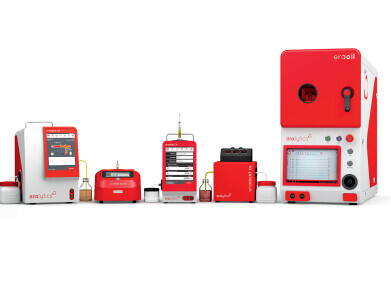Analytical Instrumentation
Why is China Hoarding Oil at Sea?
Jul 10 2020
Following bulk purchasing spurred by rock bottom oil prices, China is now storing 73 million barrels of oil on tankers anchored off the northern coast. When oil prices plunged into negative territory in April, the People’s Republic launched a major stockpile drive. Now, worldwide commodities analytical firm ClipperData says a maritime traffic jam has formed offshore as around 60 tankers wait to offload crude to mainland China.
China embarks on “global buying binge”
After the United States, China is the world’s biggest consumer of oil. In 2019 the country consumed around 14 million barrels per day. Of these, just over 10 million barrels per day were imported. Since the end of May China’s floating storage facilities have been inundated, with stock almost quadrupling over the past few weeks.
According to ClipperData director of commodity strategy Matt Smith, most of the oil was purchased in March and April when the COVID-19 pandemic and Saudi/Russia price war sent prices into a downward spiral that eventually led to historic lows of $-37.63 a barrel.
"China went on a global buying binge," says Smith. “There is just this deluge of crude building up offshore."
Despite the bargain-hunting, Smith says there’s still plenty of capacity in onshore storage tanks. “This is simply related to terminal congestion. They've got so much coming in that they can't bring it onshore quickly enough," he said.
Bulk buying bolsters energy industry
While some have criticised China for taking advantage of the battered energy market, Smith says the bulk purchasing helped to bolster the industry during an extremely volatile period. Less than two months after plummeting to lows of US$40.32 a barrel, oil has recovered to around US$40. As well as OPEC supply cuts and the lifting of COVID-19 lockdowns around the world, the US$80 swing was driven by bulk purchasing from China.
In May Chinese oil imports increased by 19% compared to the previous year, with S&P Global Platts recording rates of 11.3 million barrels per day. Much of the oil was sourced from Latin America, with Brazil a major supplier. Rabobank energy strategist Ryan Fitzmaurice asserts the bulk purchasing was a smart move, saying “If you're a big energy consumer, you'd be buying with two hands.”
China takes advantage of contango
As well as padding out its own national oil conserves, analysts say stockpiling cheap oil is a lucrative financial opportunity for China. When oil prices slipped into negative territory the market entered an abrupt “contango”, a term that describes a landscape where buyers are willing to pay higher prices in the future than in real time. This allows savvy market players such as China to buy up cheap oil and store it until it can be sold for a profit.
In the face of turbulence maximising efficiency is critical for oil producers. To find out more about how the technologies being used to help companies increase their competitive advantage, reach new levels of profitability and maintain their “social licence to operate” with improved safety and sustainability performance, don’t miss ‘How Minimising Unplanned Downtime Can Boost Plant Safety’ with insight from John Hague on behalf of Aspen Technology, Inc.
Digital Edition
PIN 25.1 Feb/March
March 2024
In This Edition Safety - The technology behind the ION Science Tiger XT - Safety with ammonia and LOHCs as hydrogen carriers Analytical Instrumentation - Discussion on new tribology te...
View all digital editions
Events
Apr 28 2024 Montreal, Quebec, Canada
Apr 30 2024 Birmingham, UK
May 03 2024 Seoul, South Korea
May 05 2024 Seville, Spain
May 06 2024 Riyadh, Saudi Arabia
.jpg)

















